
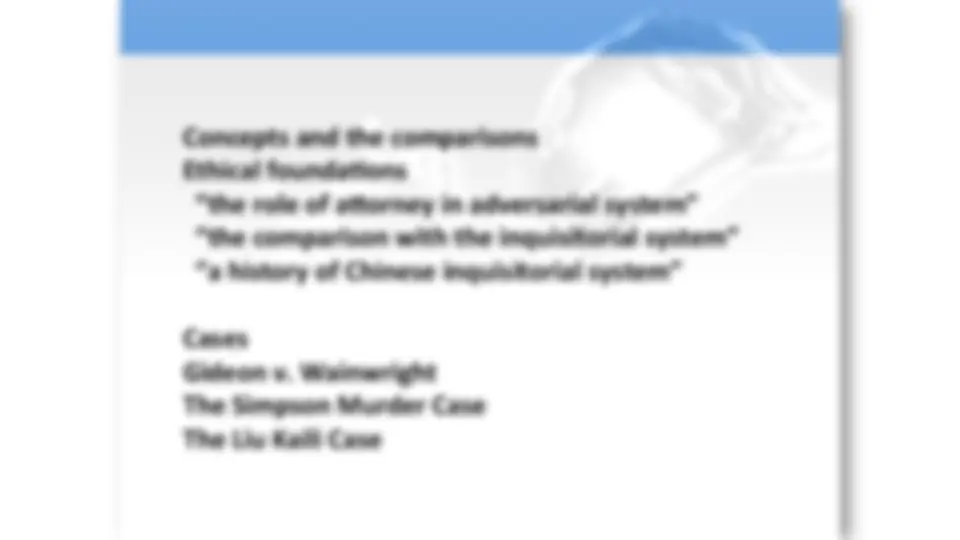
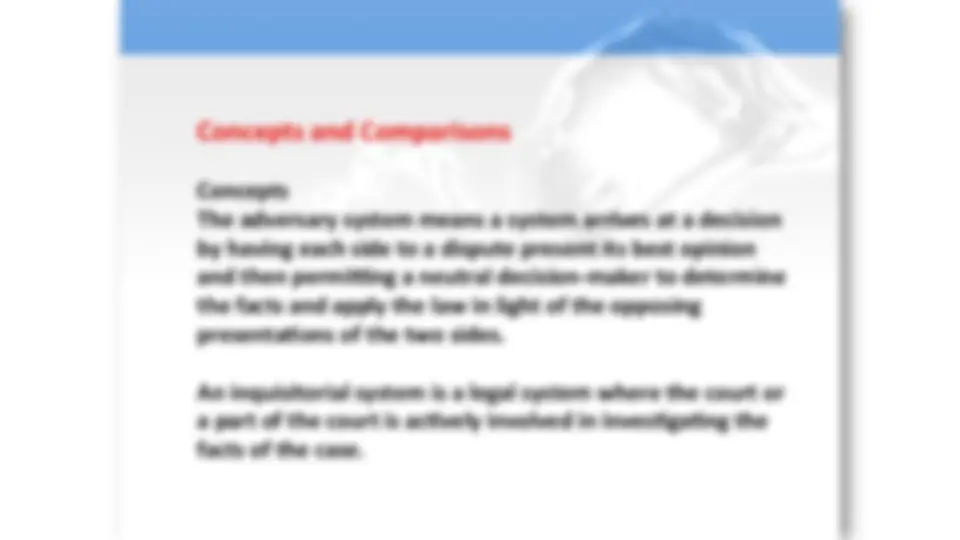

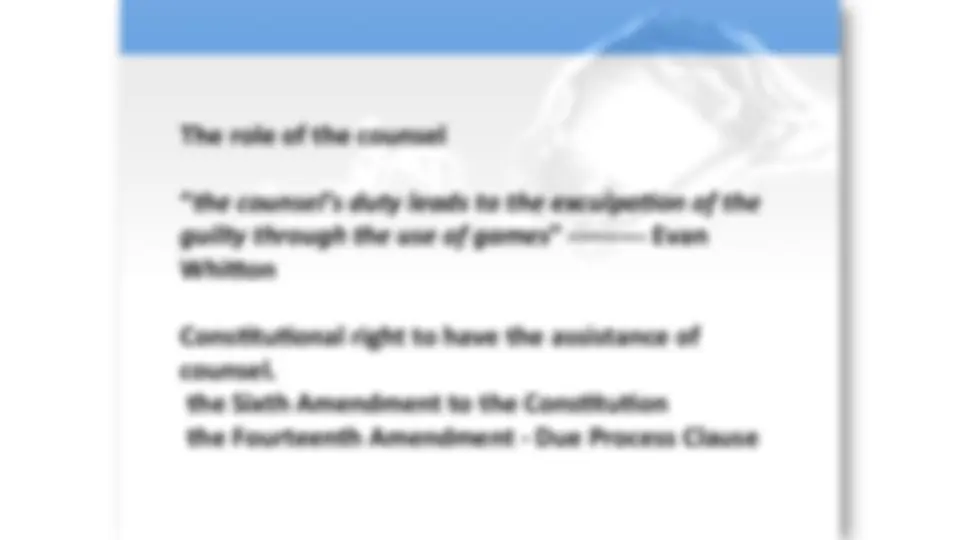


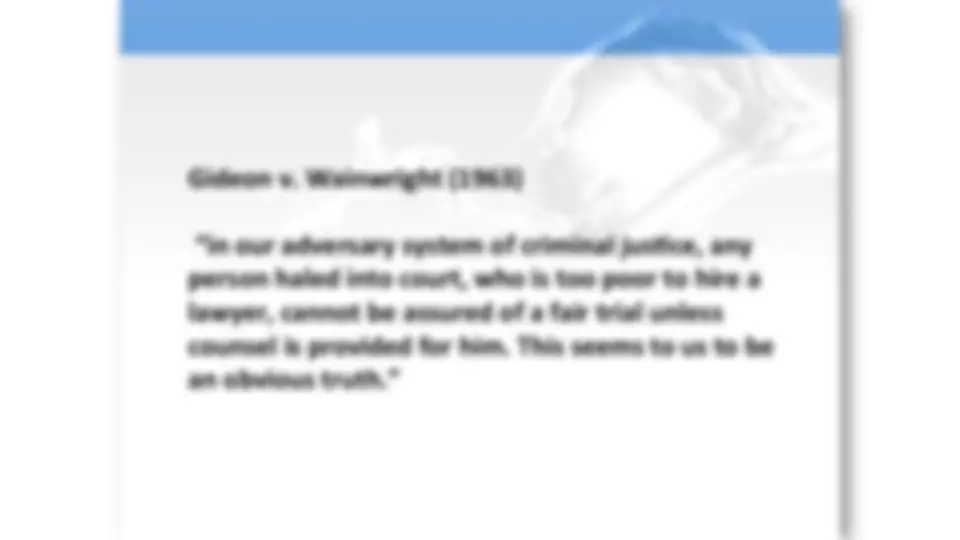
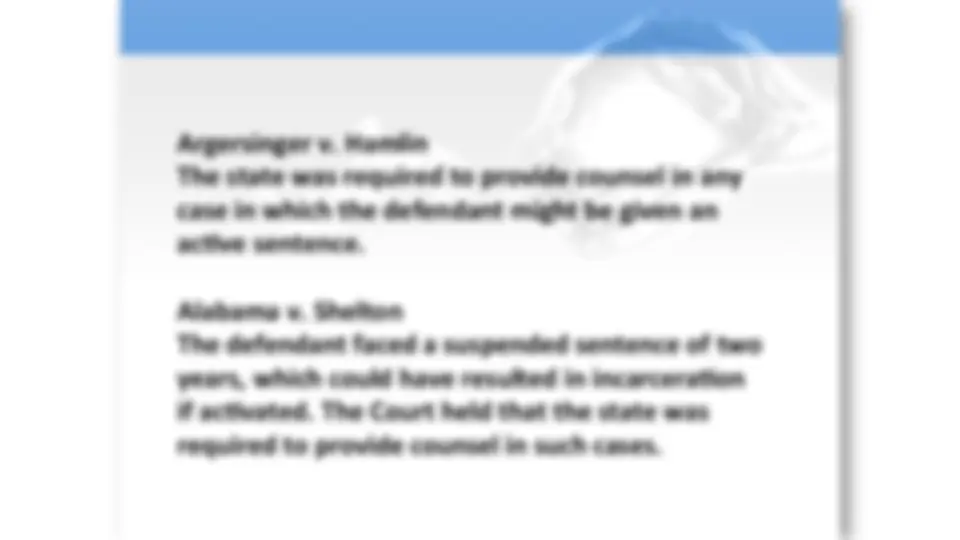





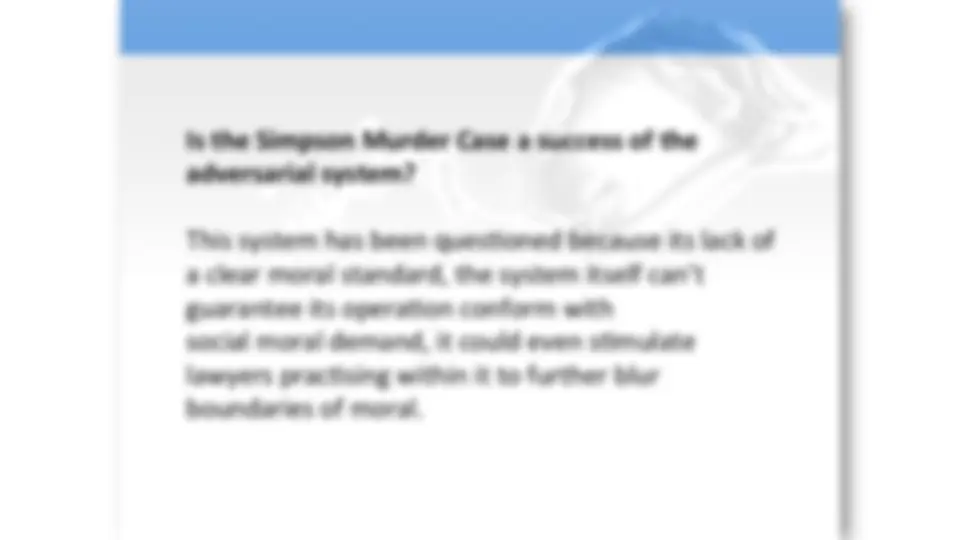
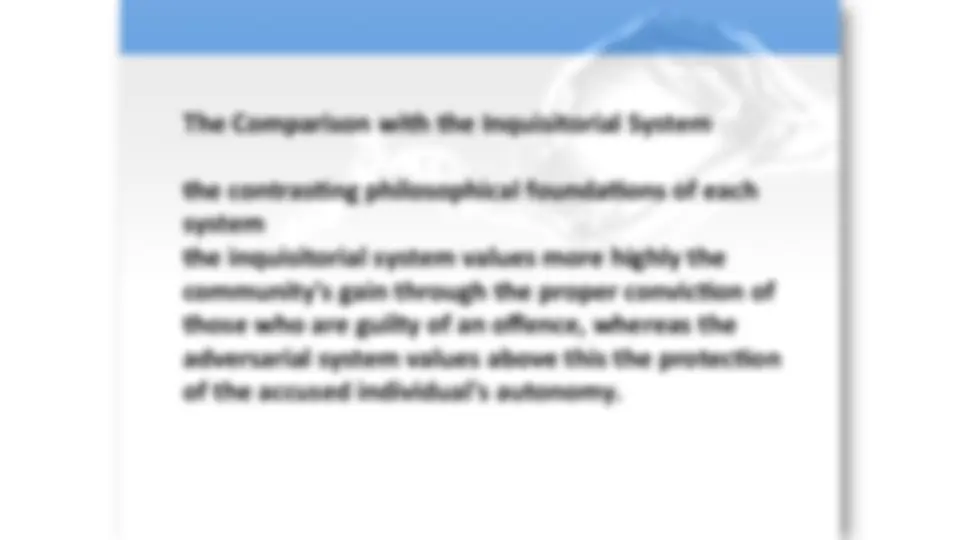
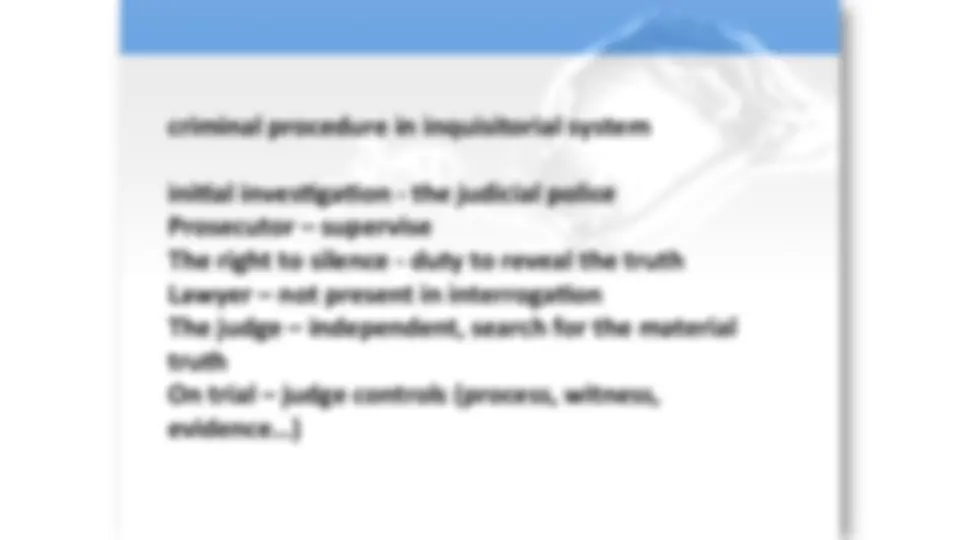
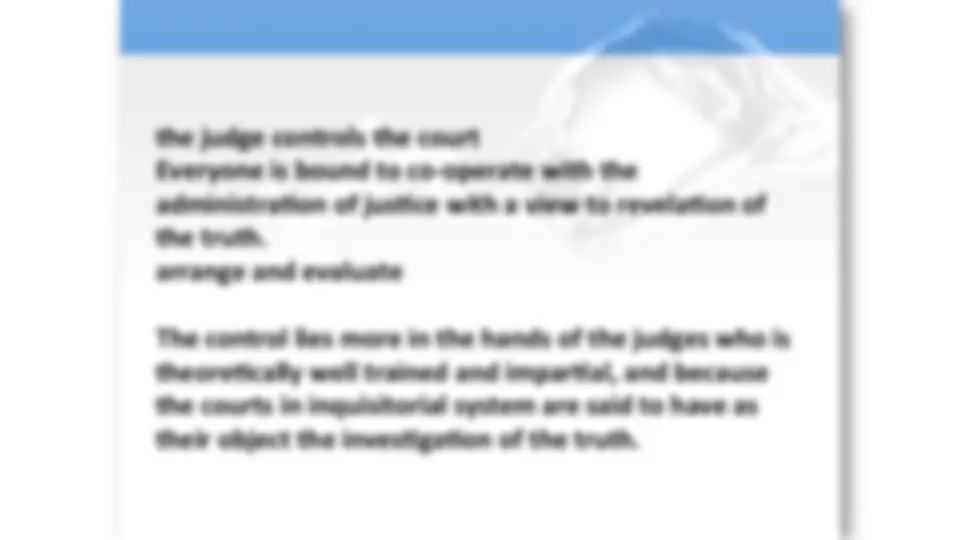
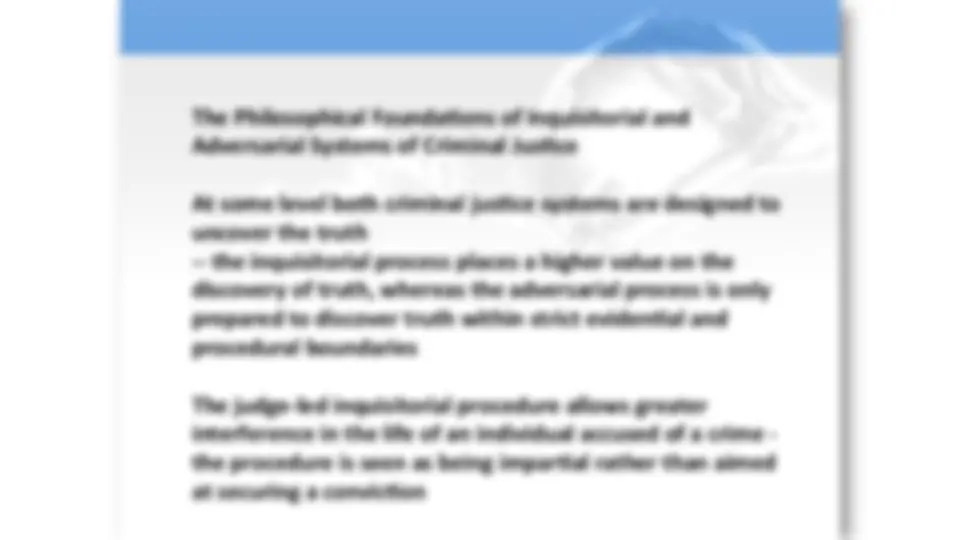

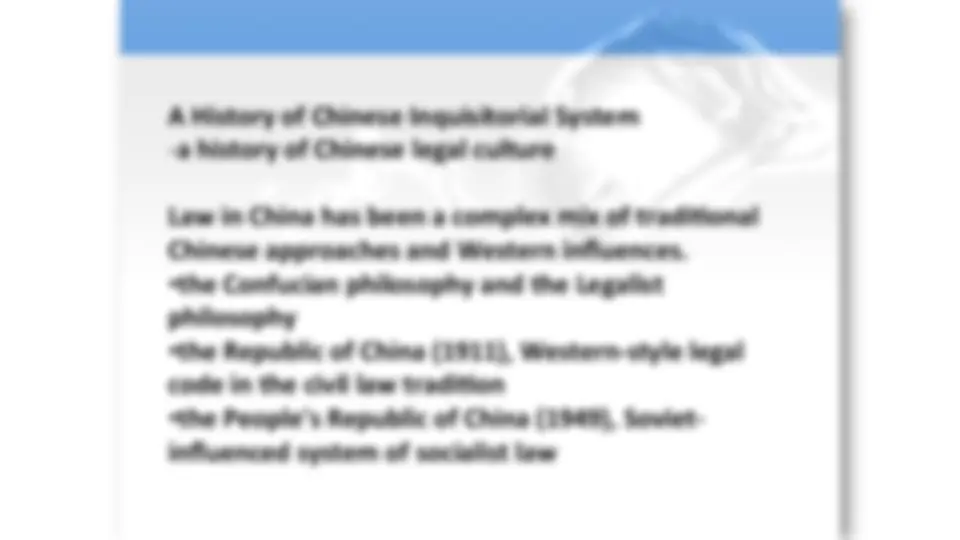



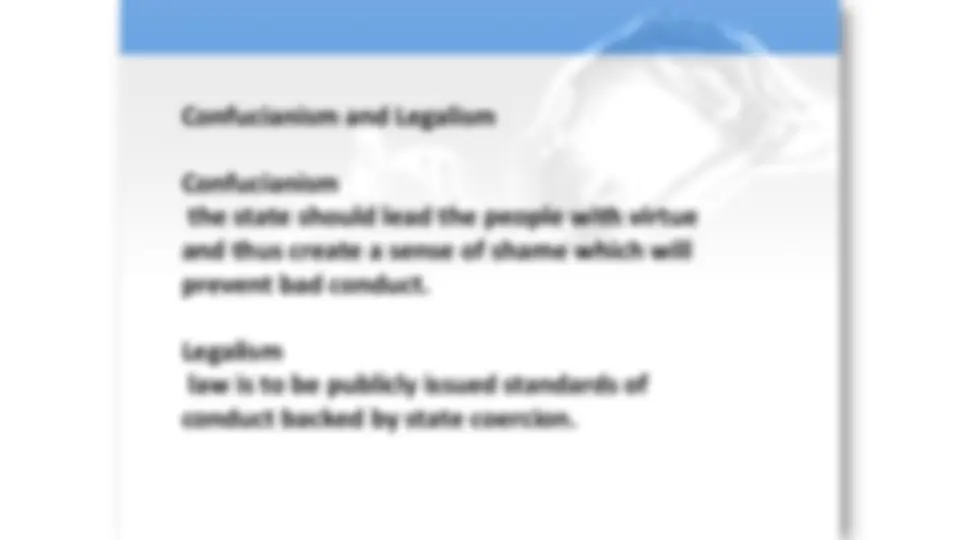

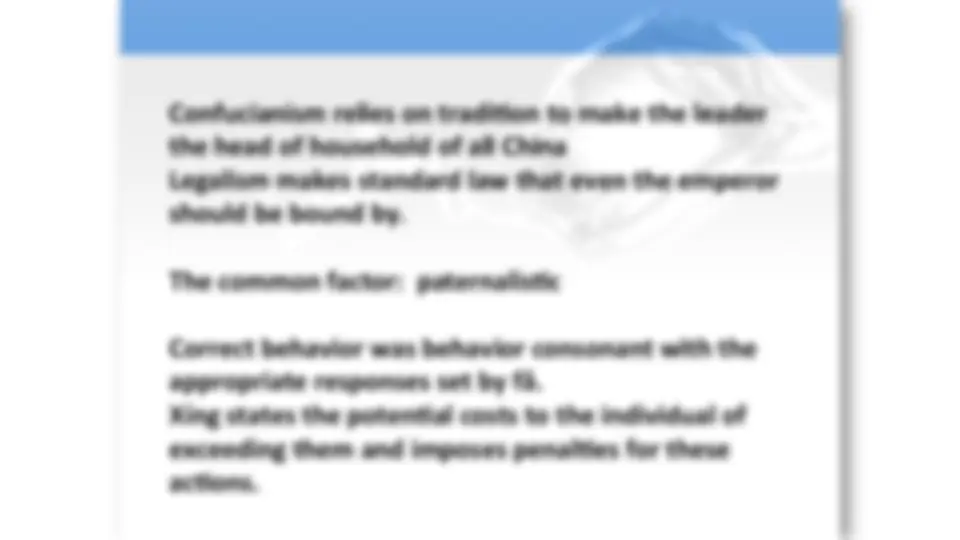


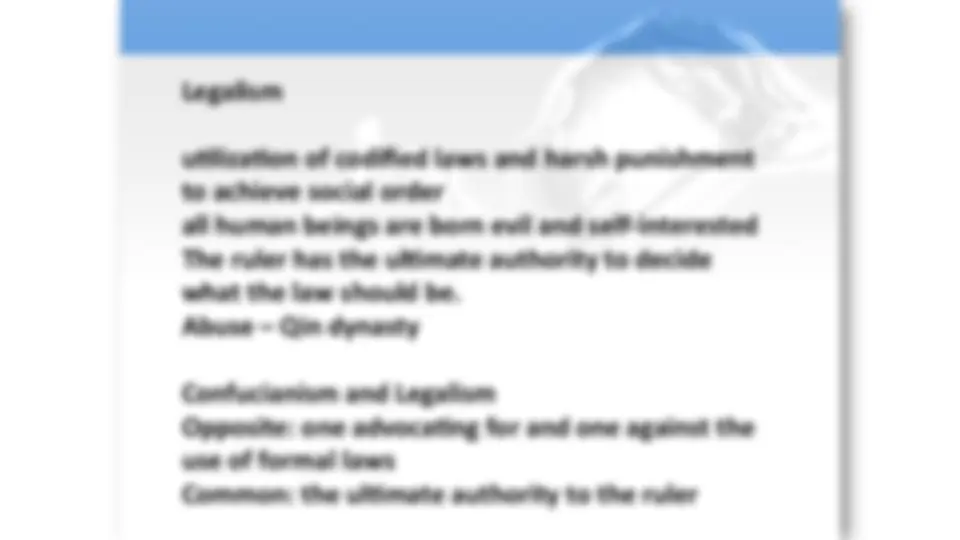
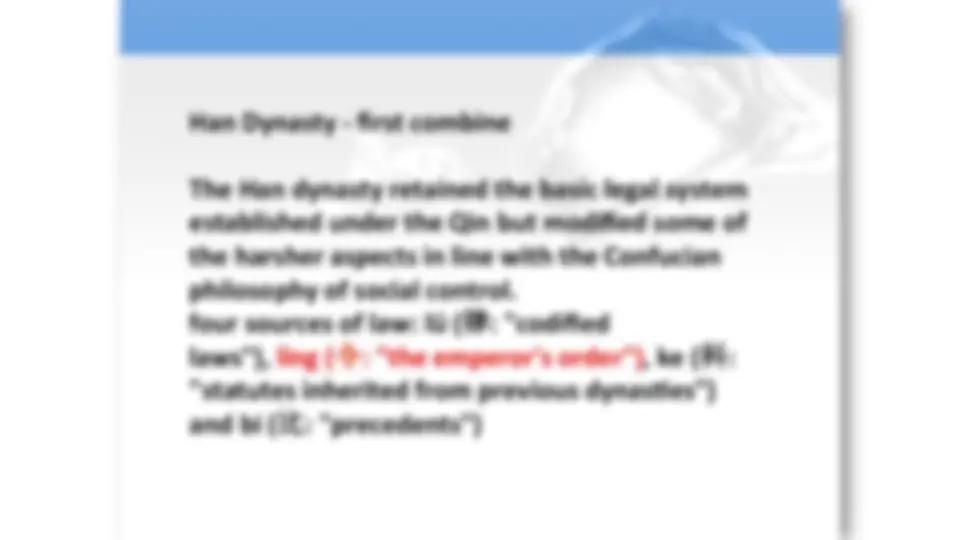





Study with the several resources on Docsity

Earn points by helping other students or get them with a premium plan


Prepare for your exams
Study with the several resources on Docsity

Earn points to download
Earn points by helping other students or get them with a premium plan
Community
Ask the community for help and clear up your study doubts
Discover the best universities in your country according to Docsity users
Free resources
Download our free guides on studying techniques, anxiety management strategies, and thesis advice from Docsity tutors
An inquisitorial system is a legal system where the court or a part of the court is ac vely involved in inves ga ng the facts of the case. Pro-‐adversary ...
Typology: Slides
1 / 41

This page cannot be seen from the preview
Don't miss anything!


































Different legal systems in different countries The Adversarial System -‐-‐-‐-‐-‐-‐-‐-‐-‐-‐-‐-‐ common law countries The Inquisitorial System -‐-‐-‐-‐-‐-‐-‐-‐-‐-‐-‐-‐ civil law countries Globaliza?on is the big issue in modern policy The obvious consequence is that knowledge of the law of jurisdic?ons out of one’s home is no longer reserved to compara?ve lawyers. The less obvious consequence is that the role, the analysis, the legal ethics, a lot of things of the law are no longer tenable in their tradi?onal forms. Interes?ng and controversial
Concepts and Comparisons Concepts The adversary system means a system arrives at a decision by having each side to a dispute present its best opinion and then permiPng a neutral decision-‐maker to determine the facts and apply the law in light of the opposing presenta?ons of the two sides. An inquisitorial system is a legal system where the court or a part of the court is ac?vely involved in inves?ga?ng the facts of the case.
Comparisons legal premise The adversary system: par?san advocacy by the two opposing sides will best lead to the determina?on of truth The inquisitorial system: the truth is best discovered through a disinterested inquiry conducted by a magistrate Judge In adversarial system: referee between the defence and the prosecutor In inquisitorial system: fact-‐finder, busy declare verdict In adversarial system: jury, half secret In inquisitorial system: judge, open
Ethical Founda?on Adversarial system: the role of the counsel A brief history
The role of the counsel “ the counsel’s duty leads to the exculpa1on of the guilty through the use of games ” -‐-‐-‐-‐-‐-‐-‐-‐-‐ Evan WhiJon Cons?tu?onal right to have the assistance of counsel. the Sixth Amendment to the Cons?tu?on the Fourteenth Amendment -‐ Due Process Clause
BeJs v. Brady, 316 U.S. 455, (1942) “In the light of this common law prac?ce, it is evident that the cons?tu?onal provisions to the effect that a defendant should be ‘allowed’ counsel or should have a right ‘to be heard by himself and his counsel’, or that he might be heard by ‘either or both’, at his elec?on, were intended to do away with the rules which denied representa?on, in whole or in part, by counsel in criminal prosecu?ons, but were not aimed to compel the state to provide counsel for a defendant.”
Powell v. Alabama,, 287 U.S. 45, (1932) “[I]n a capital case, where the defendant is unable to employ counsel, and is incapable adequately of making his own defense because of ignorance, feeble-‐mindedness, illiteracy, or the like, it is the duty of the court, whether requested or not, to assign counsel for him as a necessary requisite of due process of law.
Gideon v. Wainwright (1963) “in our adversary system of criminal jus?ce, any person haled into court, who is too poor to hire a lawyer, cannot be assured of a fair trial unless counsel is provided for him. This seems to us to be an obvious truth.”
Argersinger v. Hamlin The state was required to provide counsel in any case in which the defendant might be given an ac?ve sentence. Alabama v. Shelton The defendant faced a suspended sentence of two years, which could have resulted in incarcera?on if ac?vated. The Court held that the state was required to provide counsel in such cases.
two overlapping roles the role of quality fackinder ins?tu?onal role of ac?ng as an independent check on legisla?ve and execu?ve power. some of the procedures adopted in the American system are well-‐suited to the first goal (“truthfinding”), but other procedures undermine it in support of the second goal (“truth-‐ deflec?ng.”)
The Simpson Murder Case